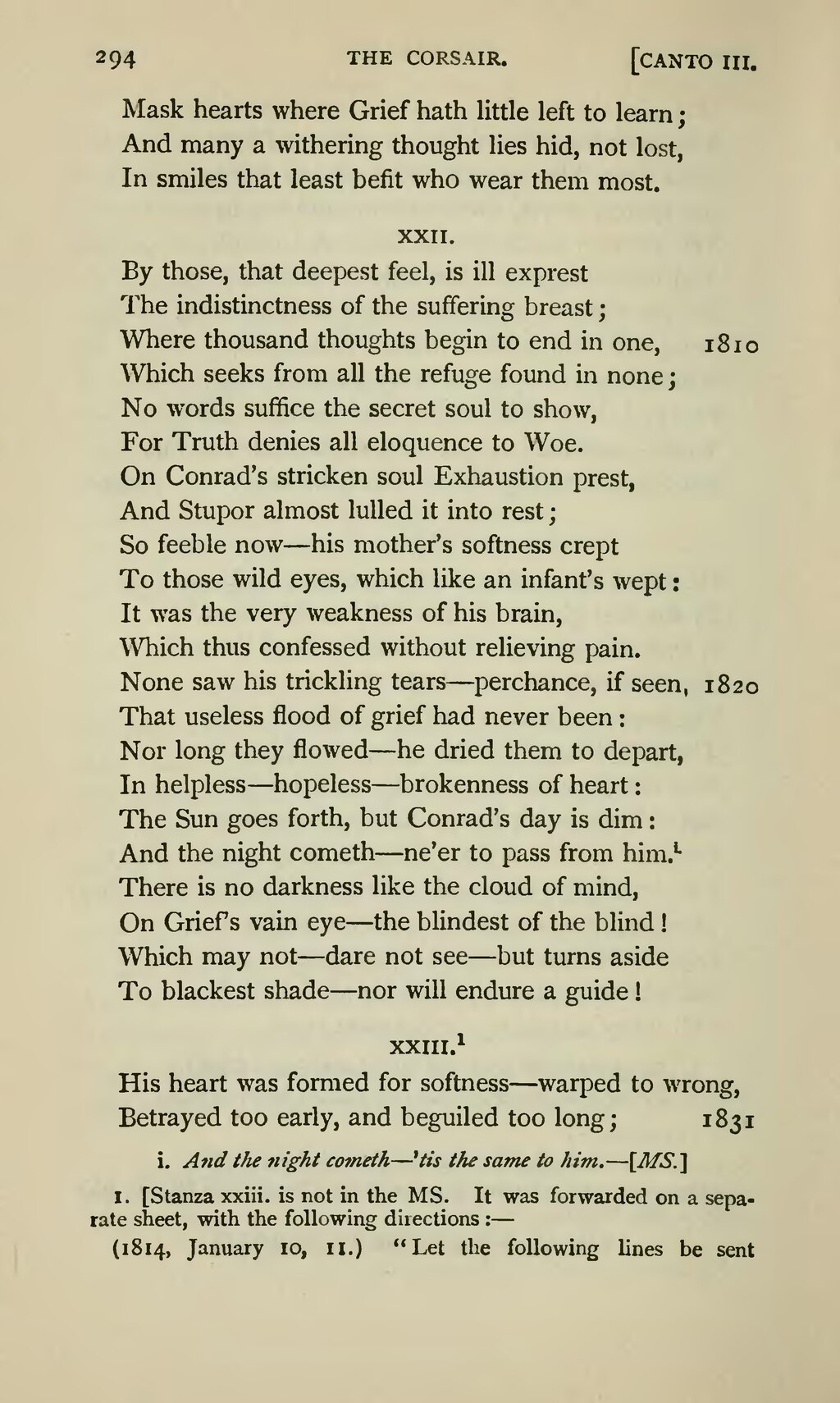Mask hearts where Grief hath little left to learn;
And many a withering thought lies hid, not lost,
In smiles that least befit who wear them most.
XXII.
By those, that deepest feel, is ill exprest
The indistinctness of the suffering breast;
Where thousand thoughts begin to end in one,1810
Which seeks from all the refuge found in none;
No words suffice the secret soul to show,
For Truth denies all eloquence to Woe.
On Conrad's stricken soul Exhaustion prest,
And Stupor almost lulled it into rest;
So feeble now—his mother's softness crept
To those wild eyes, which like an infant's wept:
It was the very weakness of his brain,
Which thus confessed without relieving pain.
None saw his trickling tears—perchance, if seen,1820
That useless flood of grief had never been:
Nor long they flowed—he dried them to depart,
In helpless—hopeless—brokenness of heart:
The Sun goes forth, but Conrad's day is dim:
And the night cometh—ne'er to pass from him.[1]
There is no darkness like the cloud of mind,
On Grief's vain eye—the blindest of the blind!
Which may not—dare not see—but turns aside
To blackest shade—nor will endure a guide!
XXIII.[2]
His heart was formed for softness—warped to wrong,
